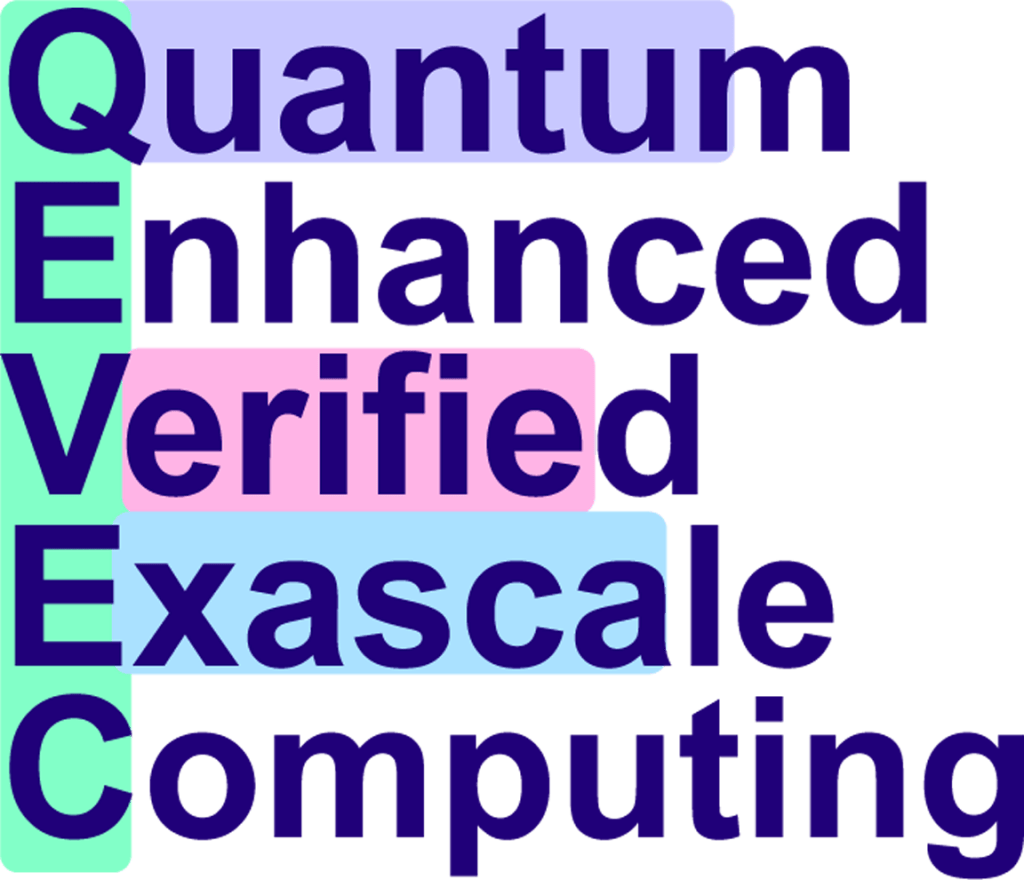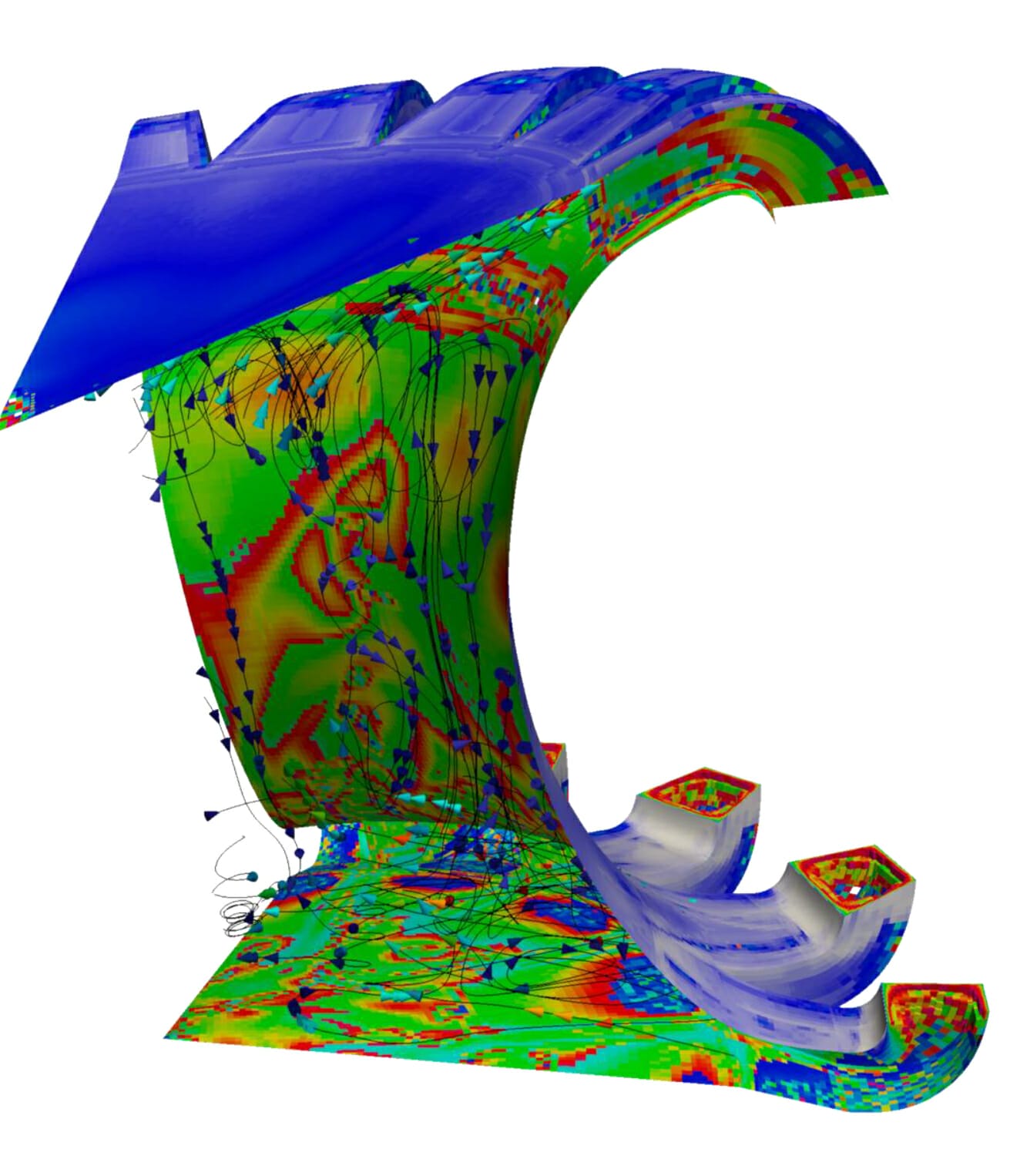Since verification, validation and uncertainty quantification (VVUQ) will be required for any viable quantum computing applications, QEVEC will also address the specifically quantum aspects of VVUQ. By focusing on two important application areas, fluid simulations and materials simulations (directly applicable to at least two of the ExCALIBUR use cases), QEVEC will produce a systematic evaluation, identification, and development of relevant quantum algorithms for exascale subroutines, and the methodology to replicate this in other application areas.

To accomplish this, QEVEC will:
- Evaluate existing proposed quantum algorithms for their suitability as quantum subroutines for exascale codes, specifically for fluids simulations (including smoothed particle hydrodynamics, lattice Boltzmann, and other CFD methods), and for materials simulations (specifically for solid solutions, electronic structure calculations, and partition function estimation).
- Match quantum subroutines to specific application codes and benchmark test-bed sized implementations, both using classical simulation and, where available, quantum hardware.
- Develop quantum accreditation for hybrid exascale codes to provide quantum VVUQ. Optimise the accreditation methods for the specific applications developed in 1. and 2.
- Work closely with other ExCALIBUR projects, CCPs and HECs, the National Quantum Computing Centre and the Quantum Computing and Simulation Hub, to ensure the outcomes are robust, relevant, and widely disseminated (knowledge exchange activities, and utilising lessons learned from the use cases).
Experts in quantum computing and computational science from five universities – Strathclyde, Durham, UCL, Warwick and London Southbank – will collaborate closely to deliver QEVEC’s contribution to the UK’s exascale computing development.
Exact evaluation of partition functions of quantum many-body systems is computationally hard – even for quantum computers. I will present a classical algorithm for estimating partition functions up to a given relative error of quantum many-body systems. This algorithm is provably computationally efficient when the value of the partition function is large. The algorithm was discovered in the course of seeking improved quantum algorithms for partition function estimation. It provides a different insight into the hardness of this computation – distinct from the sign problem. I may present some numerical results obtained using the new algorithm on the 2D Ferm-Hubbard model
Dr Animesh Datta, University of Warwick


